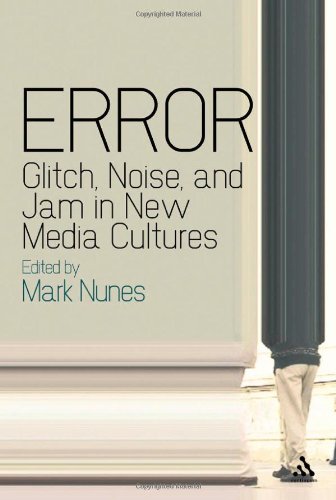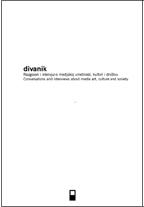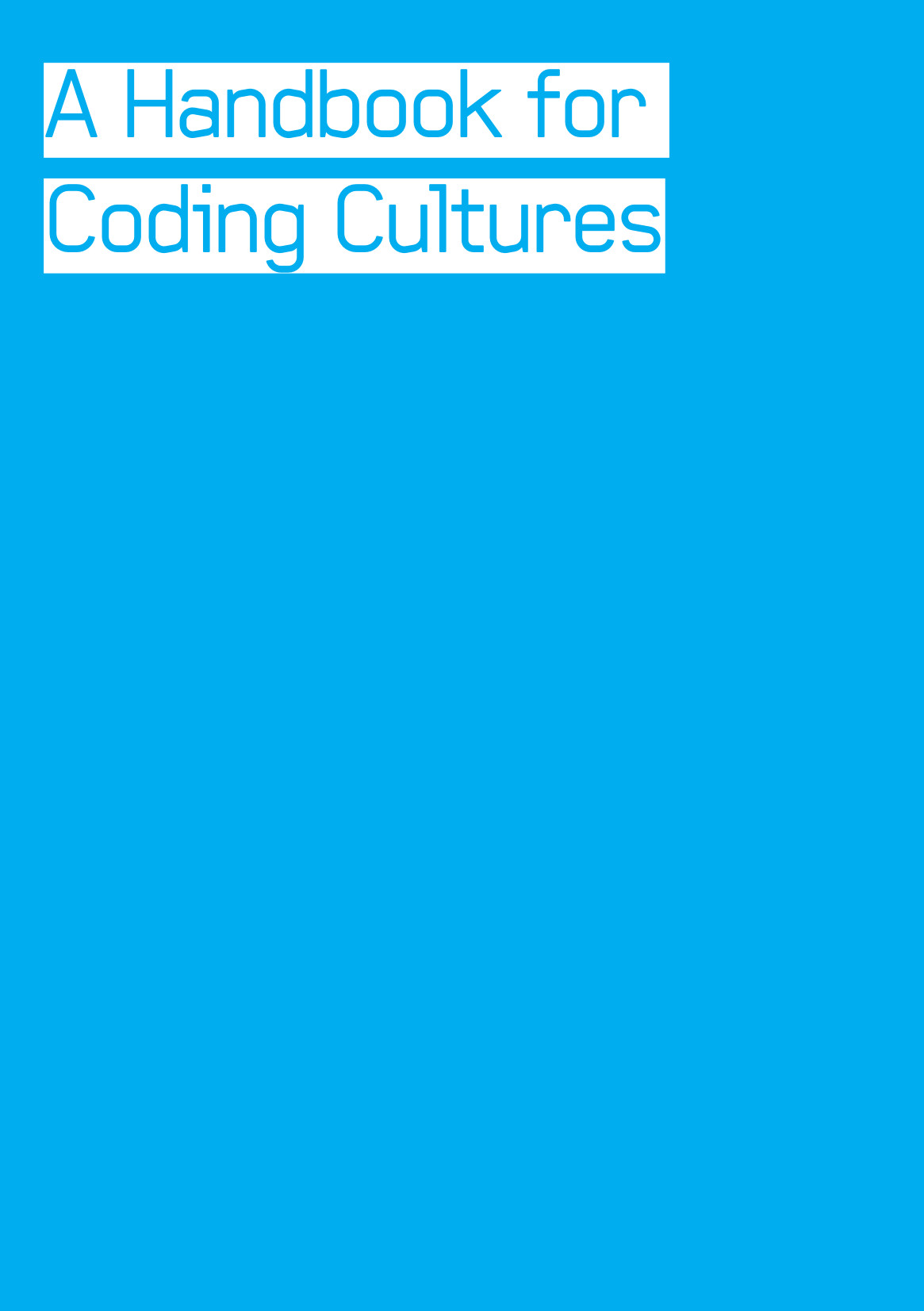Mark Nunes (ed.): Error: Glitch, Noise, and Jam in New Media Cultures (2010)
Filed under book | Tags: · botnet, error, facebook, glitch, hacktivism, machinima, media culture, new media, noise, tactical media, wikipedia, youtube

Divided into three sections, Error brings together established critics and emerging voices to offer a significant contribution to the field of new media studies. In the first section, “Hack,” contributors explore the ways in which errors, glitches, and failure provide opportunities for critical and aesthetic intervention within new media practices. In the second section, “Game,” they examine how errors allow for intentional and accidental co-opting of rules and protocols toward unintended ends. The final section, “Jam,” considers the role of error as both an inherent “counterstrategy” and a mode of tactical resistance within a network society. By offering a timely and novel exploration into the ways in which error and noise “slip through” in systems dominated by principles of efficiency and control, this collection provides a unique take on the ways in which information theory and new media technologies inform cultural practice.
Publisher Continuum International Publishing Group, 2010
ISBN 144112120X, 9781441121202
288 pages
Download (link removed by request from publisher)
kuda.org (eds.): divanik: Conversations and Interviews about Media Art, Culture and Society (2004) [English/Serbian]
Filed under book | Tags: · capitalism, internet, interview, media art, media culture, media theory, tactical media, technology

“divanik is a collection of interviews conducted in the period from 2001 to 2004 which represents intersection of research in the field of new technologies, culture and society. Interviews present network of people and organizations that make one part of the contemporary media art and theory scene. New media center_kuda.org monitored those phenomena that have interdisciplinary and intermedial character, and by inviting the significant protagonists in media art and theory the intention was to give to the local public an insight at the happenings in this field.
Research of the media is the research of the history of communication, and communication today is a bio-product of the information age, exchange of valuables in the capitalist coordinate system in which the concepts and ideas are treated as meaningful goods and products. On the other hand communication is also a tool that changes the same coordinate system.
As a communication practice the phenomenon of the interview is immanent to Internet culture. Interview represents concise form of communication and it is a useful instrument in the scientific work as meta-text that follows complex theory or artwork. In the interviews authors present contexts in which they were creating and their points of view and this direct communication through the actual questions presents real-time articulated energetic potential. That is also a chance to analyze and restructure certain topics in the form that couldn’t occur in theoretic and artistic work. Interview is a sublimation of different aspects, overlapping and interdisciplinarity that at a given moment presents unique thinking system.
The development of information and communication technologies also brought along new social ontology that is manifested in the social, political and culture field. Instantaneity of history, accumulation and pace of technological development stipulates momentary reaction and critical analysis.
The goal of these interviews is to critically analyze and present to the wider audience certain art and socio-political phenomena. Within the kuda.read edition the accent is put on pointing out to the expanded referential system inside the new media and culture that spreads from the marginal social practice to academic theory and scientific research.”
Includes interviews with Geert Lovink, Raqs Media Collective, Saskia Sassen, Marcus Neustetter, Bureau d’Etudes, Marina Grzinic, Cindy Cohn, and Steve Kurtz.
Serbian title: divanik: Razgovori o medijskoj umetnosti, kulturi i društvu
Publisher Daniel print, Novi Sad
kuda.read series, 003
Creative Commons Attribution-NonCommercial-ShareAlike 1.0 License
ISBN 8690621105
123 pages
PDF, PDF (updated on 2018-6-17)
Comment (0)Francesca da Rimini (ed.): A Handbook for Coding Cultures (2007)
Filed under book | Tags: · code, digital culture, floss, media culture, networks, open source, software

“A Handbook for Coding Cultures provides a lasting companion to the inspiring projects and topical currents of thought explored in the Coding Cultures Symposium and Concept Lab. Six invited writers and groups from Australia, Belgium, Brazil, England, Italy and Hong Kong share their experiences of building imaginative digital tools, social networks, open labs and internet-based knowledge platforms for communication and creativity. Complementing these commissioned texts are contributions from our guest artists from Canada, England and Jamaica. Artist statements from Symposium speakers completes this snapshot of contemporary cultural practice.”
Publisher d/Lux/MediaArts and Campbelltown Arts Centre, Sydney, 2007
d/Lux/Editions/02
ISBN 9780975136935
PDF, PDF (3 MB, updated on 2018-7-10)
Comments (3)
